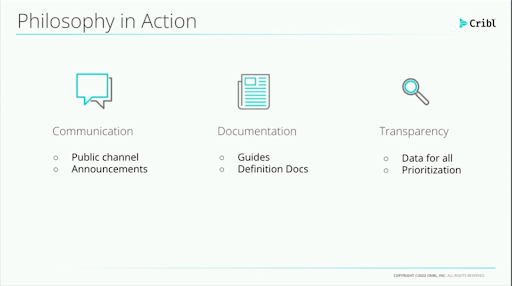What Good Data Product Managers Do — And Why You Probably Need One
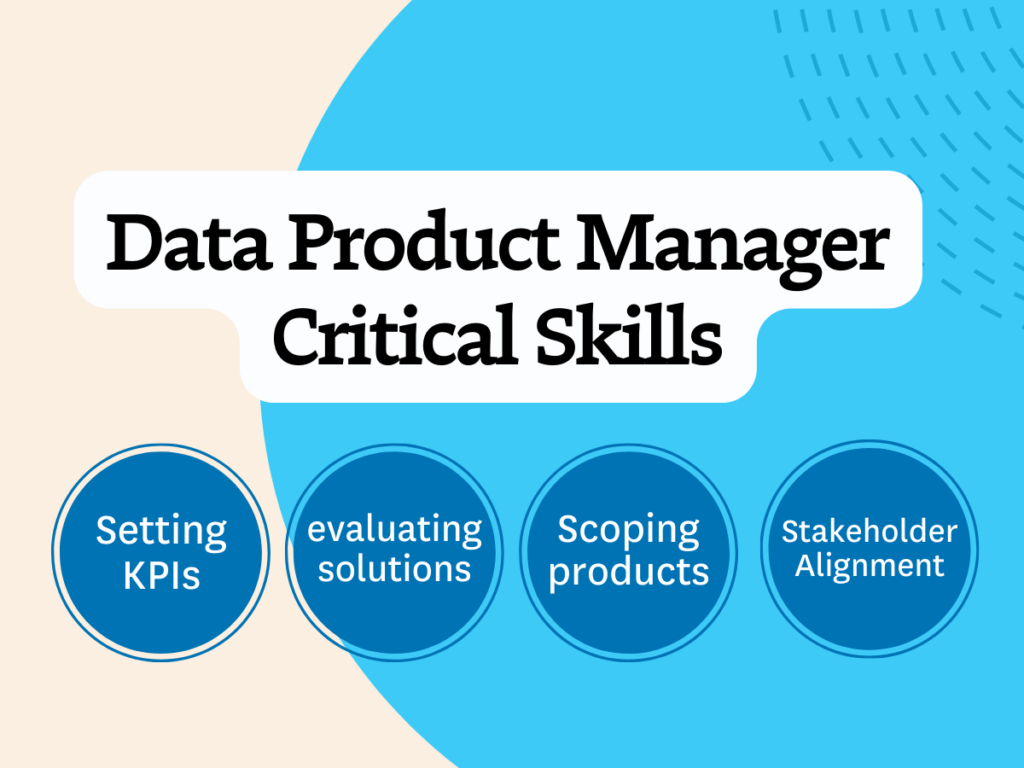
More and more of the data teams we talk to—and the organizations they support—are changing the way they treat their data assets. Instead of throwing a bunch of data into a database and trusting their analysts to manufacture gold, these teams are taking a decidedly more…operationalized approach to their data engineering.
They’re reviewing customer needs, facilitating adoption, investing in scalable tooling…
In short, they’re treating their data like a product.
But like any good product, data products can’t manage themselves. As organizations seek to sail their data practices into the modern data landscape, they’re increasingly looking to data product managers to guide the ship.
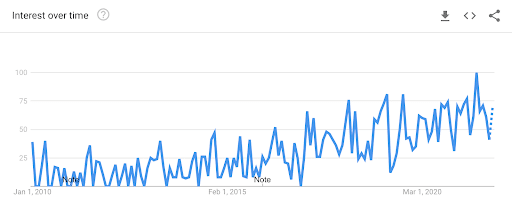
Whether they’re migrating to Snowflake, integrating with Databricks, moving towards a data mesh, or finally investing in their data quality, data teams are doing everything they can to better realize the promise of a “data-driven” company.
As an essential role of the modern data team, data product managers are responsible for identifying holes in the internal user’s data experience and then working with the data and analytics teams to bridge the gap. They drive the prioritization of projects and overall vision to optimize an organization’s internal capacity and enable consumers to effectively operationalize their data.
According to Wendy Turner-Williams, the Chief Data Officer at Tableau, any good data product needs a good data product manager.
“From my perspective, a data product manager is actually one of the first roles I would hire for. I like them to actually create the vision and then drive the engineers to that vision,” said Wendy during a recent conversation. “For me, it is a critical component as I tend to focus on data product managers who can create a story, engage with our internal customers or even our product team.”
In this article, we’ll walk through:
- What is a data product manager?
- How did data product management evolve?
- What is a data product?
- What does a data product manager do?
- What background do data product managers need? Who do they report to?
- Data product manager vs. product manager
- Data product manager vs. data scientist
- The future of the data product manager
- Frequently Asked Questions
What is a data product manager?
A data product manager (DPM) is a professional responsible for guiding the development and use of data-centric products within an organization. Bridging the gap between data science and product management, a DPM oversees the lifecycle of data products, ensuring that they align with business goals, provide value to users, and are built upon reliable and scalable data infrastructure. They work closely with data scientists, engineers, and stakeholders to define requirements, prioritize features, and ensure that the data product meets both user needs and business objectives. Essentially, they help translate complex data capabilities into tangible business value.
How did data product management evolve?
In the early 2000s, companies like LinkedIn, Netflix, and Uber had a problem. Teams across the organization were working with data, and lots of it, at scale.
Data was powering their product roadmap, fueling executive-level decision making, and informing their paid marketing campaigns.
Internal and external data was flowing in and out of the company. There were regulations, guidelines, and restrictions for how this data could be used and by whom. But nobody was in charge of developing data solutions to make analytics operational, scalable, and accessible.
As a result, the product data manager role was created to answer questions like:
- What data exists?
- Who needs this data?
- Where is this data flowing to/from?
- What purpose does this data serve?
- Is there a way to make it easier to work with/access this data?
- Is this data compliant and/or actionable?
- How can we make data useful to more people at the company, faster?
What is a data product?
Of course, you can’t have a data product manager without a data product—or several.
But defining a data product is surprisingly difficult. The truth is, many things can be considered a data product, from a Looker dashboard or Tableau report, to an A/B testing platform or even a multi-layered data platform.
Eric Weber, the Head of Data Experimentation at Yelp, suggests, “talking about data products in a generic way can produce generic results. Data product is a useful idea, but to make it really create value, we have to get into the specifics….”
So let’s get specific. Regardless of what data the product visualizes / crunches / puts to work, there are specific outcomes it should deliver:
- Increased data accessibility (surface data where people need it when they need it)
- Increased data democratization (make it easier for people to manipulate the data)
- Faster ROI on data (quicker insights)
- Time savings for the data team / data consumers
- More precise insights (i.e., experimentation platforms)
Similarly, there are important characteristics or qualities a data product should have.
- Reliability and Observability. Acceptable downtime for a SaaS product is a discussion of “how many 9s?” As in 99.9% or 99.999% availability. Just as software engineers use products such as Datadog or New Relic to track SaaS product performance, data product managers need solutions to identify and solve data product performance issues in near real-time.
- Scalability. The data product should scale elasticity as the organization and demand grows.
- Extensibility. While the data product has likely been built from an integration of different solutions, it needs to maintain the ability to easily integrate with APIs and be versatile enough to be ingested in all the different ways end users like to consume data.
- Usability. Great SaaS products focus on providing a great user experience. They are easy to learn, fun to use, and quick to get work done.
- Security and Compliance. Data leaks are costly and painful, as are regulatory fines.
- Release Discipline and Roadmap. SaaS products continually evolve and improve. Roadmaps are built at least a year into the future with a strong quality assurance process for updates.
What does a data product manager do?
A data product manager is responsible for data democratization and increasing the time to value for the data itself. They design, build and manage the cross-functional development of a data platform, or a suite of specific data tools, to serve multiple customers.
For example, Atul defined the product strategy and direction for Uber’s data analytics, data knowledge, and data science platforms. In his role, he led a project to improve the organization’s data science workbench that was utilized by data scientists to make it easier to collaborate.
Data scientists were currently automating the process of validating and verifying worker documents that were required when applying to join the Uber platform. This was a great project for machine and deep learning, but the problem was data scientists would routinely hit limits of the available compute.
Whereas a traditional engineering project lead may have tried to add more virtual machines or extend the project timeline, Atul researched multiple solutions and identified virtual GPUs (then an emerging technology) as a possible solution.
While there was a high price tag, Atul justified the expenditure with leadership. The project was not only going to save the company millions, but supported a key competitive differentiator.
This proactive approach allowed Uber to start building the foundation they would need to leverage GPUs immediately upon availability. Time to value was greatly accelerated–a hallmark of a good data product manager.
What background do data product managers need? Who do they report to?
While you don’t need to write code, this is a difficult job to do without technical training. This is a role that requires understanding complex systems and working with very technical colleagues.
It can also be helpful if the candidate has experience talking to customers. This can indicate they are skilled in translating requirements and telling stories to diverse audiences.
Common data product manager backgrounds include:
- Back-end engineering (managers or strong engineers that want to set a vision)
- Traditional B2B product management
- Internal tooling product management
- Data analysts
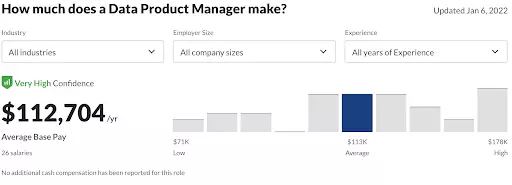
Some data product managers are beholden to data analysts and data scientists. Others work with operations teams, software engineers, or in the case of larger companies, executives.
However the reporting is structured, the data product manager makes it easier for data consumers to understand and democratize not so much the data itself, but the insights gleaned from that data.
Data product manager vs. product manager
Working with data involves a skill set unique to most forms of product management.
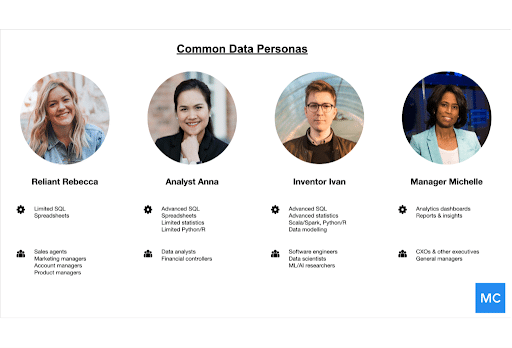
Instead of working with traditional customers, you’re working with data consumers. These are employees using products that make sense of your company’s data, whether that’s internally derived, third-party, or otherwise.
In other words, the data product manager is a product manager role solely dedicated to building internal data tooling or the data product that serves internal data consumers.
Data product manager vs. data scientist
The main difference between these two roles is data scientists are trying to glean insights within an existing product or solution. For example, “why is a user not signing up?”
On the other hand, a data product manager works to empower engineers, business stakeholders, and executive leadership by discovering, “what is the best outcome for this data and how do we get there?”
For example, Uber collects data every time a user takes a trip. The data scientist would be able to help predict price points for when a user might complain or jump to another rideshare app as well as reasons for why the price was so high.
The data project manager would be focused on what else can be done with the data, what other data it can be combined with, how to ensure the data is reliable, if the machine learning models are adequate, and more.
The future of the data product manager
Data teams are becoming increasingly decentralized and splintered – there are more roles emerging, from data governance managers to analytics engineers.
At the same time, the distance between data producers and data users is growing and demand is increasing exponentially. This is due in part to the growing reliance on data across all parts of an organization.
The future of the data product manager will very much resemble the traditional product manager: a conductor that spans silos and inspires teams to play in harmony.
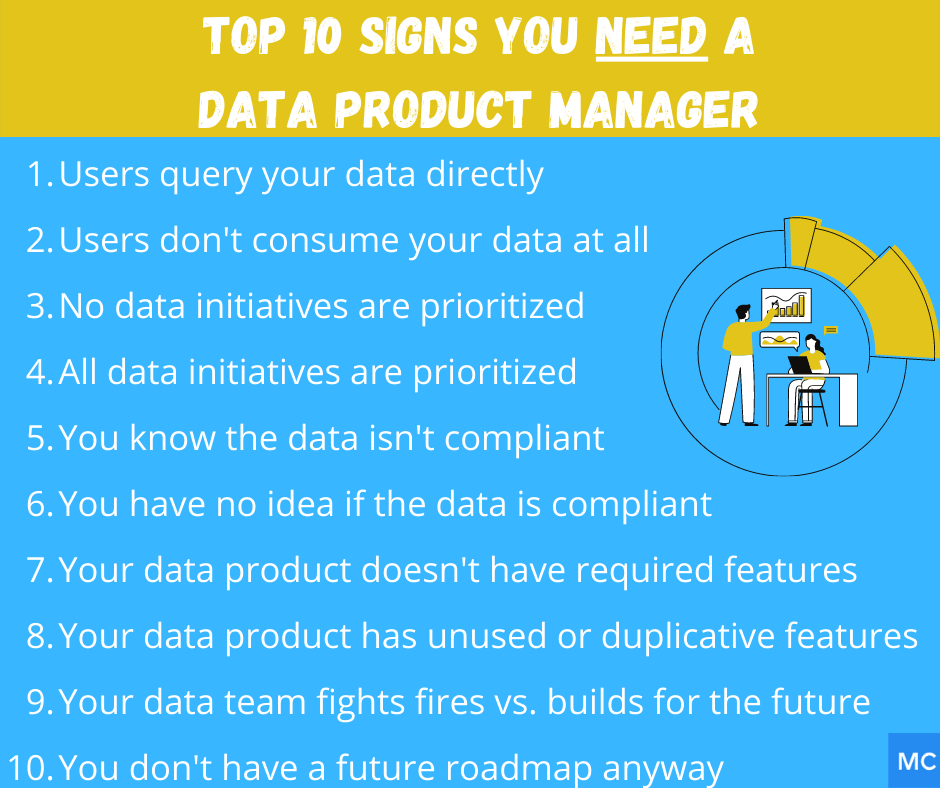
They will be the critical connection point between data team members, data consumers, and product builders. Data product management will bridge the divide between data product and data as a service. They will identify the needs of users, monitor developments, evangelize a vision, coordinate stakeholders, and prioritize projects.
As a result, the organization will move from a reactive posture of fighting data fires to a proactive stance of building internal data capabilities as a competitive advantage.
Progressive data product managers will critically examine the qualities of a good data product and set their own metrics (we have some suggestions for downtime and data quality).
Data product user satisfaction will be surveyed, downtime measured, and release processes documented. It will all be tied back to business value and evangelized across the company.
And that is an exciting future for data professionals indeed.
Connect with Barr and Atul on LinkedIn.
Are you developing and managing the data products for your organization? Book a time below to see how Monte Carlo can help take your data quality to the next level.
Our promise: we will show you the product.
Frequently Asked Questions
What is a data product manager?
A data product manager (DPM) is a professional responsible for guiding the development and use of data-centric products within an organization. Bridging the gap between data science and product management, a DPM oversees the lifecycle of data products, ensuring that they align with business goals, provide value to users, and are built upon reliable and scalable data infrastructure.
What skills do you need to be a data product manager?
Data product managers specialize in building data products, which requires skills in both data engineering to build the data products and data analysis to understand how those products will be used. This can include data platform development, coding pipelines, and even managing data quality monitoring.
Other soft skills like communication are also important to align products with stakeholders and gain buy-in from leadership teams.
What is the difference between a data analyst and a data product manager?
A data analyst is a practitioner of the data, leveraging existing data products to uncover insights and derive value from data assets. The data analyst isn’t responsible for creating new data products but are one of the many internal consumers of existing data products.
A data product manager is the role responsible for understanding the needs of data consumers like data analysts, and then developing and maintaining the data product in order to meet those specified needs—while also uncovering new opportunities to leverage data for stakeholders.
What is the difference between a product manager and a data product manager?
The product manager is the role responsible for developing a specific software product or category—generally for external consumers. This person will identify customer needs, align new developments to business objectives, and guide the development team to bring that product to life.
A data product manager is a very specialized product manager that speaks the language of data scientists to guide data engineers as they develop new data products specifically—including both data platforms, data pipelines, ML models, etc.
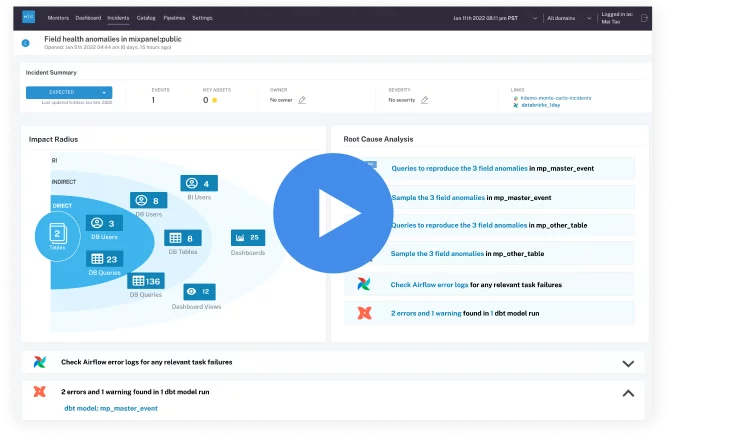 Product demo.
Product demo.  3 Steps to AI-Ready Data
3 Steps to AI-Ready Data 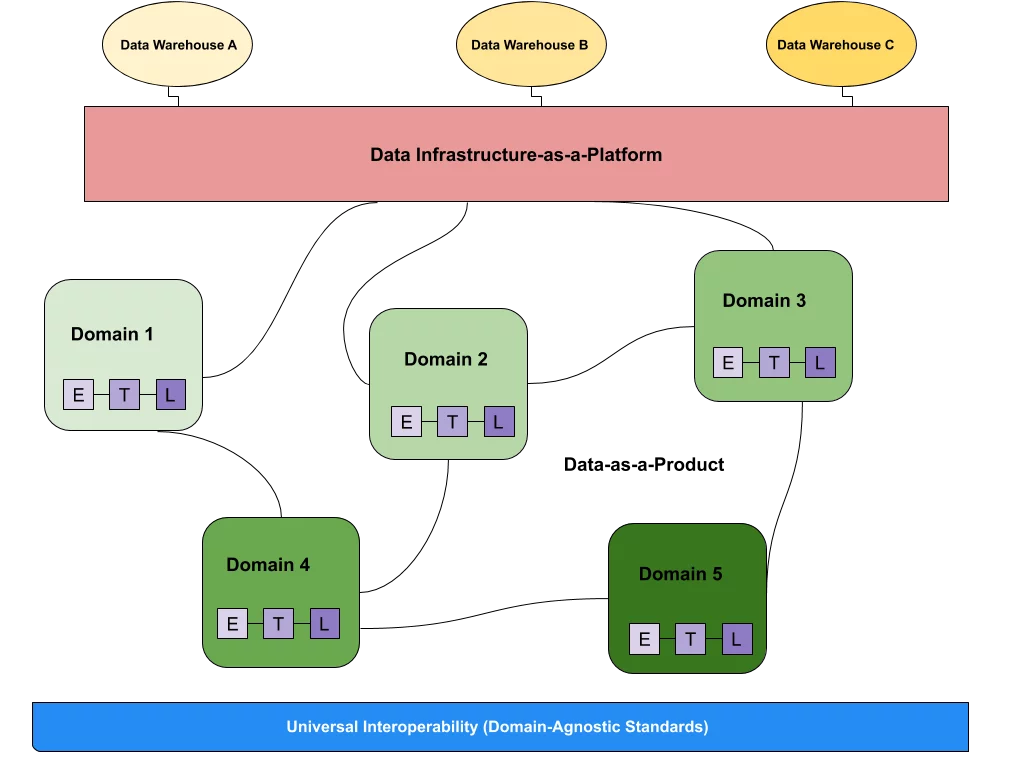 What is a data mesh--and how not to mesh it up
What is a data mesh--and how not to mesh it up 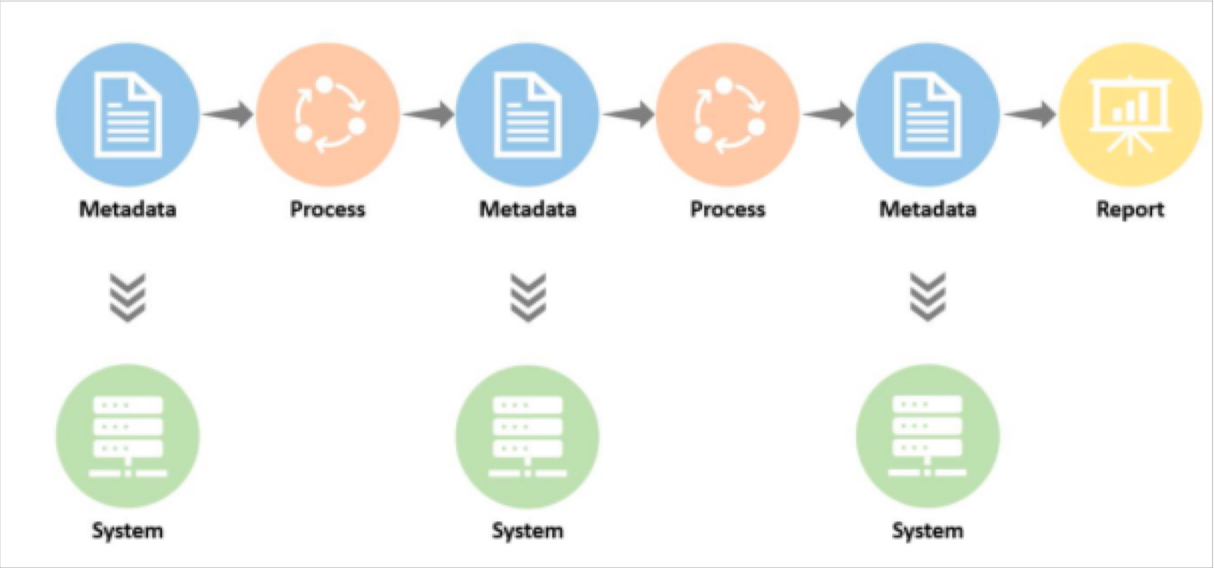 The ULTIMATE Guide To Data Lineage
The ULTIMATE Guide To Data Lineage 





